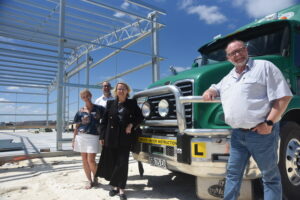
US President Donald Trump suggested an escalation of economic sanctions against Russia as the war in Ukraine continues to intensify. Speaking to reporters at the White House on August 26, 2023, Trump expressed skepticism about the prospect of a swift meeting between Russian President Vladimir Putin and Ukrainian President Volodymyr Zelenskyy. He emphasized the seriousness of the situation and his desire to see the conflict resolved.
“I want to see that war end,” Trump stated, indicating he had significant measures in mind should negotiations stall. He underscored the economic implications of ongoing tensions, stating, “It will not be a world war, but it will be an economic war.” He cautioned that such a conflict would have detrimental effects, particularly for Russia, adding, “I don’t want that.”
Trump’s administration has previously hinted at the possibility of imposing sanctions on Moscow, although these have not yet been enacted. The United States and its European allies have already implemented a series of stringent sanctions against Russia following its invasion of Ukraine in February 2022. Trump noted the duality in the conflict, stating, “Zelenskyy is not exactly innocent, either,” reflecting his complex relationship with the Ukrainian leader.
During a recent televised Cabinet meeting, which lasted over three hours, Trump reiterated the challenges in arranging a face-to-face meeting between Putin and Zelenskyy, who have not met in person since 2019. He remarked, “I’ve got to get them both at the same time,” underscoring the logistical difficulties in securing a negotiation.
In the backdrop of these discussions, Zelenskyy has been actively advocating for a meeting with Putin and suggested potential venues in Turkey, the Gulf States, or European nations. Russian Foreign Minister Sergei Lavrov commented last week that the agenda for such a meeting is “not ready at all.”
Steve Witkoff, Trump’s special envoy, announced plans to meet with Ukrainian representatives in New York, describing the engagement as a significant signal. Witkoff stated, “We talk to the Russians every day,” highlighting ongoing dialogues amid the crisis.
As military operations continue, Ukrainian leaders reported on significant developments in the eastern regions of Ukraine, where Russian forces have gained ground. General Oleksandr Syrskiy, Ukraine’s top military commander, outlined key areas of focus, including Pokrovsk, Dobropillya, and Kupyansk. He noted the increasing pressure on the Ukrainian army, which faces challenges due to being outmanned and outgunned.
Concerns are mounting within Ukraine regarding Russia’s apparent lack of interest in peace, as emphasized by senior adviser Mykhaylo Podolyak. Following discussions in the United States, he noted that active consultations are ongoing with US and European officials to bolster military support for Kyiv. “We are in active consultations about increasing the supply of various tools for conducting counter war operations,” Podolyak stated.
In a separate but related issue, the Ukrainian government announced that men aged 18 to 22 are permitted to leave the country during the ongoing conflict. Prime Minister Yulia Svyrydenko confirmed this policy, which contrasts with previous restrictions that barred men aged 18 to 60 from exiting Ukraine.
This change in policy has sparked discussions about fairness and enforcement of travel restrictions, with reports indicating a rise in illegal border crossings and bribery. Notably, Svyrydenko faced scrutiny after revealing her brother is currently living abroad, which raises questions about the privileges enjoyed by some families during wartime.
As Ukraine continues to navigate complex military and diplomatic landscapes, the nation’s leaders remain focused on garnering increased support while addressing the internal challenges posed by ongoing restrictions and societal disparities.






